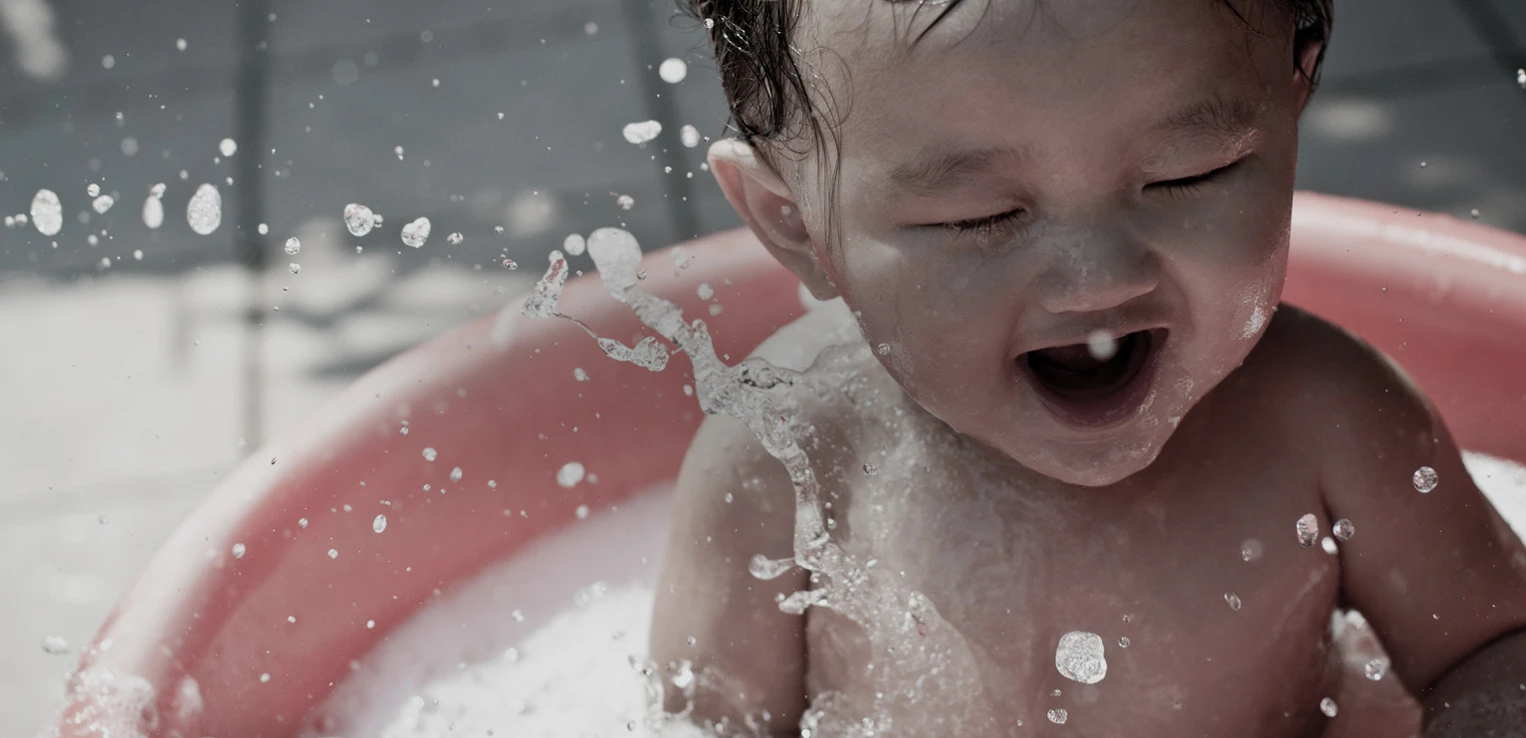You only have to touch a baby's amazingly soft skin to know it is more delicate and fragile than your own. And the JOHNSON’S® brand research has shown just how different a baby's skin is from an adult's.
Skin acts as a protective barrier, the first line of defence against outside organisms, toxins, irritants and allergens. Baby's skin, which is thinner than yours and which continues to develop through the first year of life, is more vulnerable to irritants. These differences make it essential to help protect your baby's skin from irritants and a harsh environment. Determining what makes your baby's delicate skin unique and how best to protect it has been the focus of years of JOHNSON'S® baby research. To this day, we continue to study baby skin of all types, using non-invasive measurement techniques and clinical assessments by dermatologists and paediatricians. Our JOHNSON’S® brand science teams have become quite expert at making babies and their mothers feel safe and comfortable as we conduct our assessments. And by comparing baby skin to adult skin, we can start to really understand its uniquely different needs.
Did you know that skin needs appropriate hydration to remain healthy and skin that is too dry can lead to skin barrier disruption and even infection? Interestingly, in a research study where 90 percent of the mothers surveyed thought their baby's skin was not dry, 60 percent of their babies actually had clinically visible dry skin. Thanks to our research we know that although your baby's skin is naturally more hydrated than your own during the first 12 months of life, it can surprisingly lose water more quickly. And as your baby matures and becomes more active, chances are you will wash their face and hands more, which may also lead to skin dryness. So it's essential to use appropriate mild and gentle baby products that don't dry your baby's skin, help maintain the skin's natural moisture balance and that help protect against skin breakdown.
Keeping babies clean, through good skin hygiene, is essential to your baby's overall good health and wellness. Proper cleansing helps keep the skin free of unwanted substances, including dirt, transient germs, and irritants such as those from saliva, nasal secretions, urine, and faeces (including faecal enzymes). Maintaining a clean nappy area helps prevent skin breakdown, rash and infection. And keeping hands clean, particularly in the case of babies and their hand-mouth behaviours, can help reduce or prevent oral transmission of microbial contaminants. Special attention should also be paid to the facial area, where vulnerable skin can be easily irritated by milk, food and saliva. Similarly, skin folds and creases should be kept clean.
You can read here how these discoveries led to the creation of our CLINICALLY PROVEN MILD™ formula.
